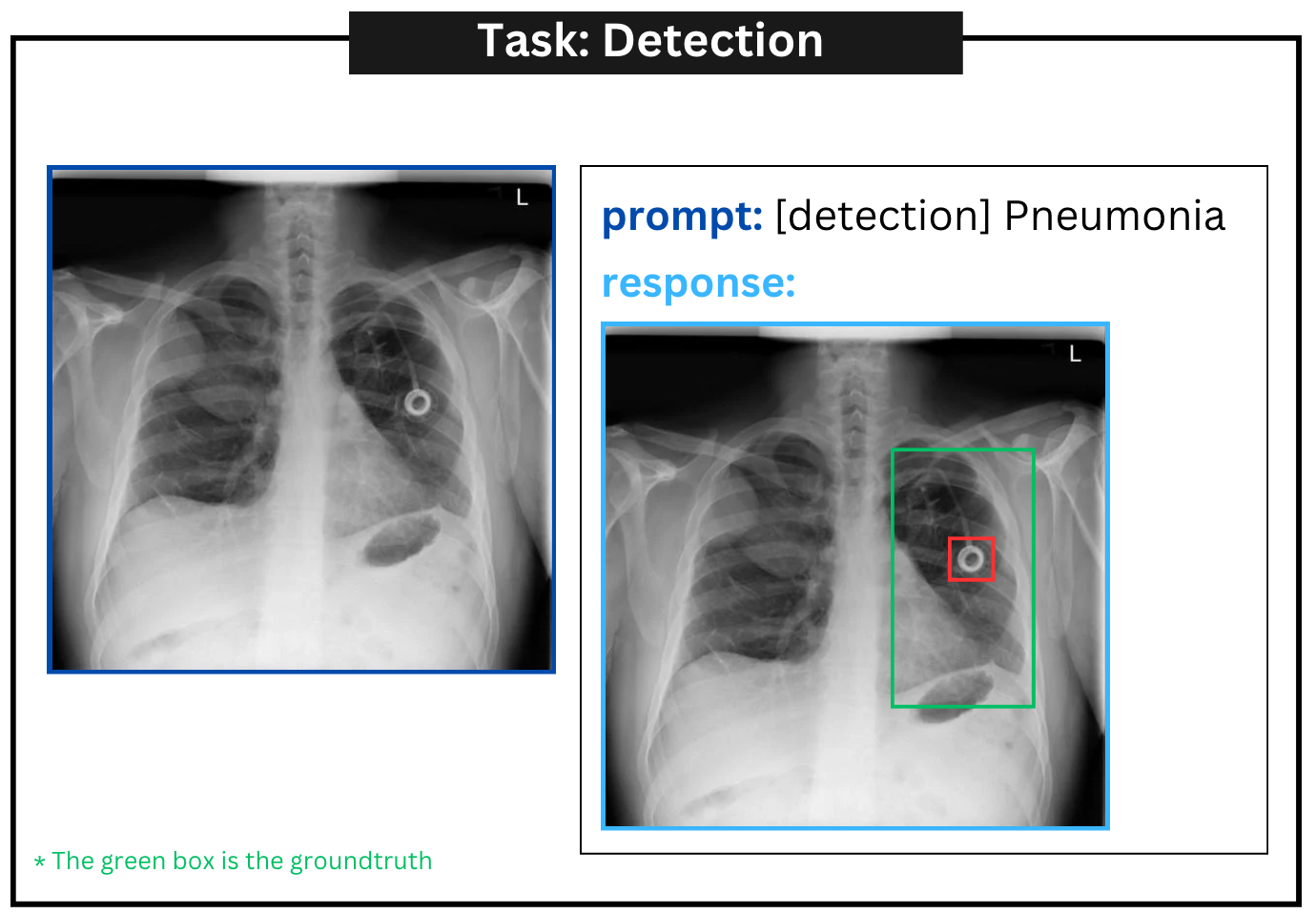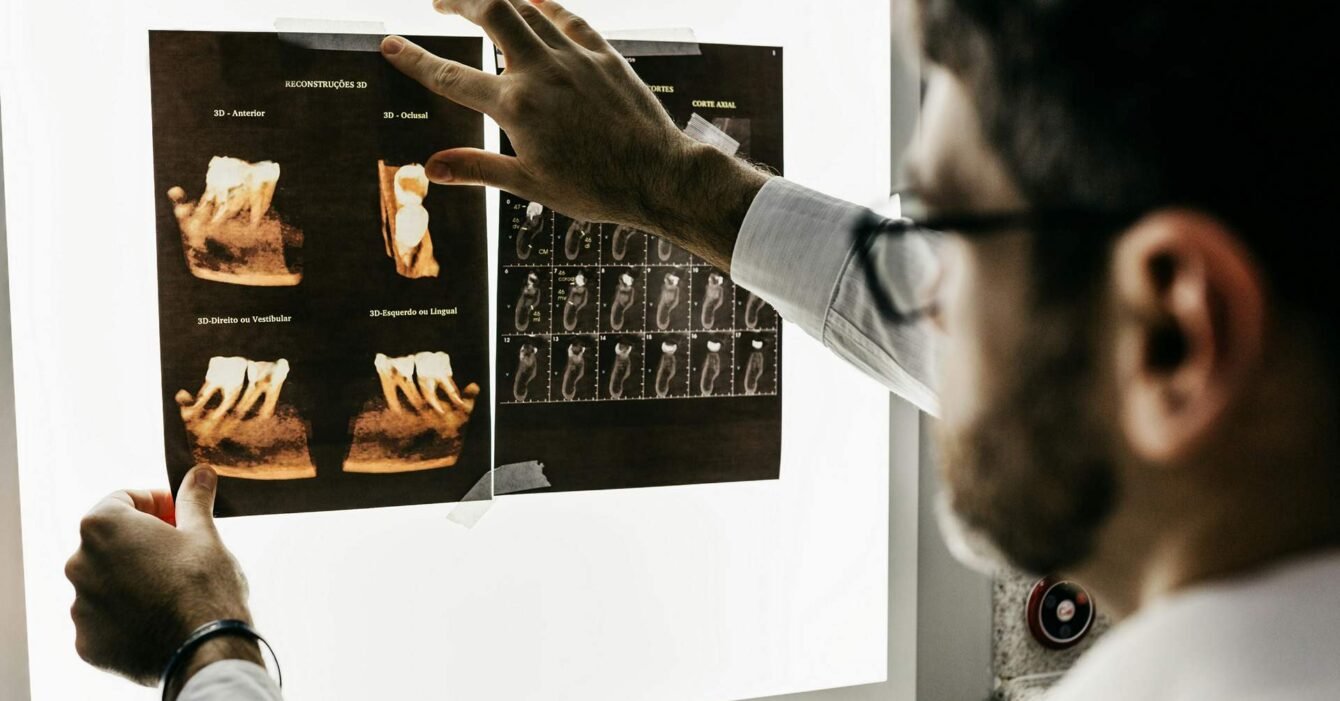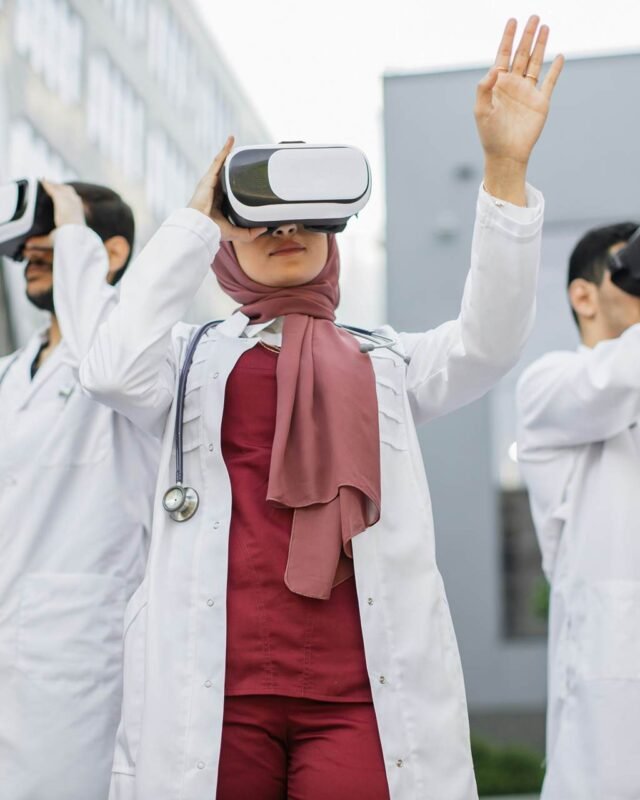Saudi Arabia’s healthcare sector is constantly improving patient care and operational efficiencies by implementing advanced technologies, positioning the Kingdom as a leader in healthcare advancements. This article investigates the latest healthcare technology trends in Saudi Arabia, such as AI, telemedicine, and digital health records, and assesses their impact on the industry’s future.
The Use of AI in Advancing Radiology Diagnosis in Saudi Arabia
Artificial Intelligence (AI) advancements are significantly impacting healthcare technology trends globally. AI-powered applications are being used to increase the precision of diagnoses, personalize treatment plans, and streamline administrative processes. Machine learning algorithms analyze vast amounts of medical data to identify patterns and predict outcomes, assisting healthcare professionals in making informed decisions.
One of the latest developments is the use of AI in radiology. King Abdullah University of Science and Technology (KAUST) and the Saudi Data and Artificial Intelligence Authority (SDAIA) have introduced MiniGPT-Med, a new vision-interfaced large AI language model aimed to provide faster and more efficient radiology diagnosis.

MiniGPT-Med has demonstrated impressive versatility across various imaging modalities, including X-rays, CT scans, and MRIs, covering 14 diseases. It significantly outperforms other state-of-the-art models, making it a valuable tool in fast-tracking diagnosis and reducing human error in radiology. The model’s open-source release encourages further experimentation and feedback from researchers and institutions worldwide.
Telemedicine: Bridging Distances in Healthcare
Telemedicine has emerged as a vital component of Saudi Arabia’s healthcare technology trends, particularly in response to the COVID-19 pandemic. This technology enables remote diagnosis and treatment, reducing the need for physical visits to healthcare facilities. Telemedicine platforms facilitate consultations between patients and healthcare providers through video calls, online chat, and mobile applications.
The Saudi Ministry of Health launched the “Seha” app, which allows users to consult with doctors remotely, access medical advice, and receive prescriptions. This initiative has significantly improved access to healthcare services, especially for those in remote or underserved areas. Telemedicine not only enhances convenience for patients but also reduces the burden on healthcare facilities, allowing them to focus on critical cases.
Emerging telehealth companies are expanding nationwide capabilities by utilizing innovative technologies in healthcare services. As a result, the Seha app was developed in 2018 to enable live audiovisual medical consultations with physicians via cell phones. This app has facilitated millions of online consultations, demonstrating its potential to transform healthcare delivery in Saudi Arabia.
Digital Health Records in Saudi Arabia
Digital health records, or electronic health records (EHRs), provide a comprehensive and centralized repository of patient information. This technology enhances the accessibility and security of medical data, facilitating better coordination among healthcare providers.
The Saudi Ministry of Health has implemented the National Health Information Center (NHIC) to oversee the integration of EHRs across the Kingdom. This initiative ensures that patient data is securely stored and easily accessible to authorized medical professionals. EHRs streamline administrative tasks, reduce paperwork, and minimize the risk of errors, leading to improved patient outcomes and operational efficiencies.
The Future of Healthcare in Saudi Arabia
The integration of telemedicine, AI, and digital health records is set to revolutionize Saudi Arabia’s healthcare sector. These healthcare technology trends are driving a shift towards a more patient-centric and efficient healthcare system. By leveraging these technologies, Saudi Arabia aims to enhance the quality of care, reduce costs, and improve accessibility for all its citizens.
In Saudi Arabia, there are numerous plans and initiatives in place to expand digital health. The government has invested billions to establish and extend healthcare coverage, resulting in the rise of both public and private medical institutions. Digital health systems, using information and communication technologies (ICT), address various health issues through telemedicine, web-based analysis, mobile apps, and more.
The future of healthcare in Saudi Arabia looks promising, with ongoing investments in technology and infrastructure. The Kingdom’s Vision 2030 initiative underscores the importance of adopting innovative solutions to meet the evolving needs of its population. As healthcare technology continues to advance, Saudi Arabia is poised to become a global leader in delivering cutting-edge medical services.




